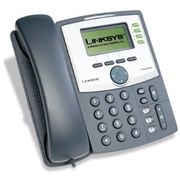FKI:Phone
The FKI has been using various VoIP services to make and receive phone calls over the internet based on the open standard SIP protocol. Below follows the current way of using the FKI Phone.
Contents
About SIP
SIP stands for Session Initiation Protocol and is maintained by the ISOC's IETF.
Set up your SIP device
There are hard and soft phones. Softphones include Ekiga, which is available at most GNU/Linux installation. Check out the list of SIP software. It might be necessary to check your router set-up, as NAT's can make things a little harder to start using SIP (check here).Within FKI we (also) use professional hardware for making SIP calls. In particular we use a Cisco/Linksys IP Phone SPA941.
Call the FKI
You can call the FKI basically in two ways: either through a regular (landline) phone number in Amsterdam or calling the SIP access number. Both ways get you to the FKI phone central, from where you can dial an extension to reach the person or service you're interested in.
- Phone: +31.20.8910.319
- SIP:fki@pbxes.org
When calling us you will be welcomed by the FKI Phone Operator. If you dial the desired extension, you'll be transferred to the person or conference room you're interested in. In case you don't know, just press 0 (zero) and you will be forwarded to one of the team.
About our set-up
Asterisk PBX
In the past we have had our own Asterisk installation, and a managed service donated to us, but given the good PBXes service at very low rates, we changed to them some years ago. PBXes.org charges a low monthly fee of a few Euros to provide us with an uninterrupted Asterisk PBX.
Call out
To call to regular phone numbers all over the world, make sure your hard or soft phone is connected to the FKI server (at pbxes.org) and dial your number (in an international format). We use a very low cost service, which basically lets us call for (almost) free to landlines in many countries (at least the Western ones but also many others).
